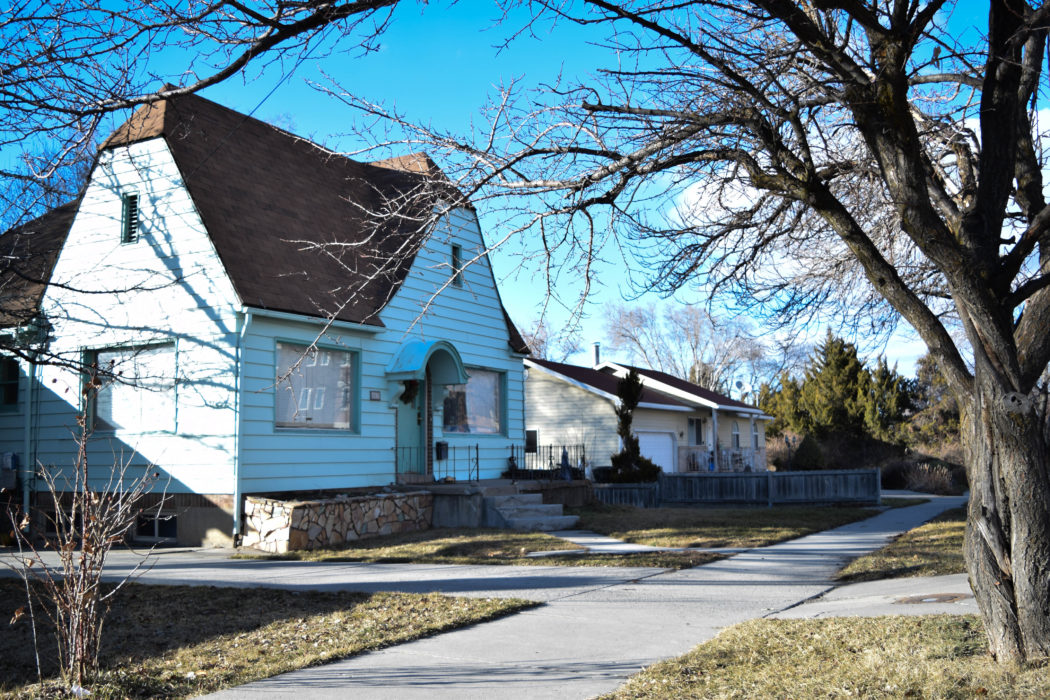Little-known housing law restricts number of residents per housing unit.
When choosing housing for school some students opt to rent a home in Logan city, but they are often unaware of the many obligations and laws associated with doing so. A particular Logan zoning law regarding the amount of people per household has caused trouble for USU renters and city landlords alike.
As stated in Section 5.17.095 of Logan Municipal Code and Chapter 17.13 of the Logan Land Development Code, living units such as houses are only allowed to accommodate up to three unrelated adults or a family. The only exception for this three person rule is for Campus Residential units, most apartments on and off campus which can house up to six unrelated adults.
Russ Holley, a senior planner for Logan City, said that this law was put in place to reduce impact from a property to neighborhoods.
“We’ve found that if you put too many unrelated individuals in a house, cars tend to be parked on the front lawn, maintenance goes down and there are a lot of noises,” Holley said.
Still, not every landlord follows this zoning law and this can effect USU students.
Mekenna Malan, a recent USU graduate, found housing this year at the bottom of Old Main hill on 500 North. Malan was rooming with two of her friends and seven other girls.
Soon after they all moved in, Malan and her roommates found out that their landlords had received a violation from the city stating that there were too many people in the house. They had 10 days to reduce the number of people in the house down from 10 to 3.
One of the landlords, who wishes to remain anonymous, was reluctant to talk about the violation. The landlord was even angry at Malan for telling the house about the violation.
Malan and her friends immediately sought alternative housing.
“Even if we didn’t get evicted in the end, we just didn’t feel comfortable living there,” she said.
They were able to find new contracts and move out of the house in 24 hours. The other seven girls stayed in the house though.
Malan and her friends had to persuade their landlords to let them out of their contacts. They still haven’t been reimbursed for security deposits or rent paid in advance. Malan said the landlords claim they were trying to make it fair to the people already living there.
Holley, speaking generally of Logan city, said, “Every semester we get complaints from a neighbor (that too many people) are living in a house.”
Holley said that when a complaint is received it is processed by the Logan Neighborhood Improvement Division, which will investigate the claim. Once an officer from that division believes there is a violation, they’ll then place a notice on the property.
“(Landlords) have a certain time to comply, typically 30 days,” Holley said, “with landlords and leases they’ll try to negotiate it till the end of the semester, but it all depends on the violation and the level of non-compliance.”
The negotiations and fines depend largely on the experience on the landlord, Holley said. If they are a new landlord, and they don’t understand the rules, there is a “grace period” given to educate them.
“If they’re repeat offenders then there is less grace given,” Holley said.
Malan said she believes in her case that the landlords were fully aware of the zoning laws.
“He did in fact, know about the law,” Malan said, “because he was trying to get us to only have three people park in the driveway, and the remaining seven girls had to park at the transit center, four blocks away. Which was not in our contract.”
It even seemed like her landlords were trying to cover the entire thing up, Malan said.
“It sounded like they were still trying to sell three more contracts even after we moved out,” she said.
Malan said she is particularly worried about other students knowing about the zoning laws, because it might result in students getting evicted, something that will lower the likelihood of finding housing for individuals in the future.
“The goal is to bring the house to compliance, which is down to three unrelated people,” Holley said. “There’s a process to achieve that goal and every landowner will tackle that differently.”
Landlords who fail to comply to the zoning law will be fined, if those fines accrue they might end up in small claims courts.
Holley said it is important for students and any renter to review their lease with their landlords.
“They’re all private contractual agreements,” Holley said, “and nine times out of 10, problems result from people not understanding or not fully reading the contracts.”
Holley also said to check with the city when reviewing leases to verify information such as parking and occupancy guidelines.
Overall, Holley said, the city has made great strides in training and educating landlords so that problems like Malan’s won’t be as frequent.
However, Holley said, “You always get a few that are just defiant.”
Both Malan and Holley said they hope more students will become familiar with zoning laws.
“It seem like almost everyone has a story like this,” Malan said. “I feel like a lot of landlords around campus do it, but the city doesn’t hand out the violations until someone complains. I do feel most landlords abide by the rules and are honest, but almost every student I talked to wasn’t aware that this was a rule.”
Logan City does publish an interactive map showing each property in Logan and the allowed occupancy. It can be found here: gis.loganutah.org/residentialoccupancy.
—dillan.passmore@aggiemail.usu.edu
@dirtyghettopass

